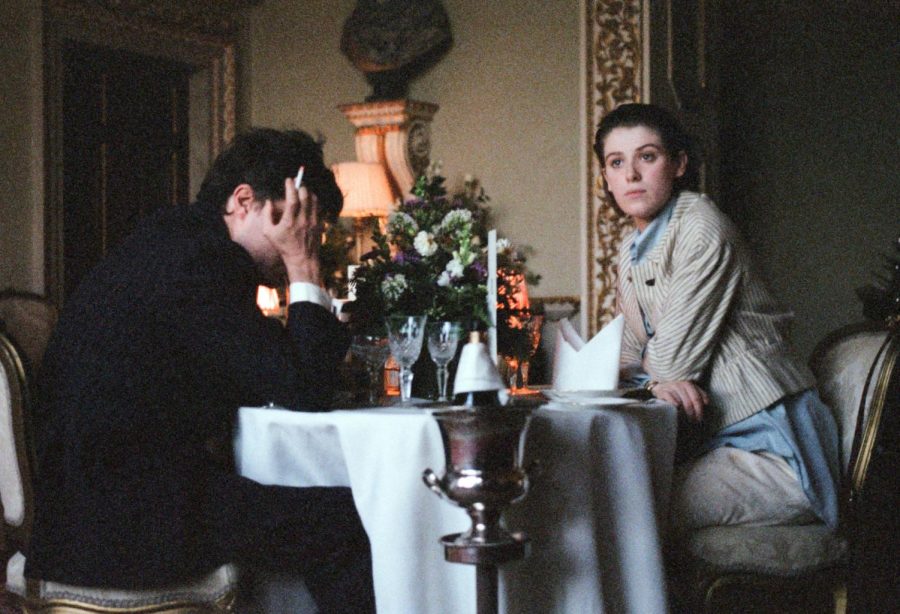‘The Souvenir’ duology reflects on the irrationality of first love
In “The Souvenir: Part II,” Joanna Hogg draws from her first love and experiences as a film student to bring the story of her fictional counterpart to a poignant conclusion. “The Souvenir” and “The Souvenir: Part II” are available on VOD.
“The Souvenir,” directed by Joanna Hogg, recounts a tumultuous period of her life as a film student. In the film, her proxy, Julie, engages in a love affair with Anthony, a troubled older man leading her on a journey of self discovery. (Photo By Agatha Nitecka, Courtesy of A24)
March 9, 2022
In his novel “Kafka on the Shore,” Haruki Murakami writes that in love, “we each look for missing pieces of ourselves.“ Like stepping into an old room of memories, love can become a mirror. For Joanna Hogg, director of the two-part film series “The Souvenir,” love is also a means of existential self-discovery which, painfully, leaves behind permanent scars.
For the last 60 or so years in cinema, the autofiction genre — a combination of fiction filmmaking and autobigography — has manifested in various film movements, styles and even, curiously, in documentaries such as “I Am a Sex Addict” by Caveh Zahedi. Hogg now adds herself to the long list of auteurs who turned the camera toward themselves.
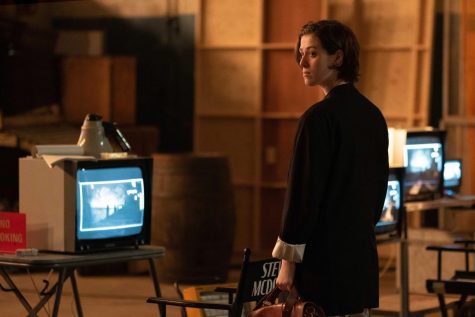
Hogg draws from directors like Sofia Coppola and Federico Fellini, both of whom have used autobiographical filmmaking as a way of contending with troubled pasts. “The Souvenir” series meditatively recounts a tumultuous period of her life as a film student.
As a young film student, Julie (Honor Swinton Byrne), Hogg’s fictional counterpart, navigates through her self-consciousness on a quest to find herself. Julie’s relationships take center stage in the film. The way in which she discovers herself through her experience with love speaks volumes on emotional growth and the value of retrospection.
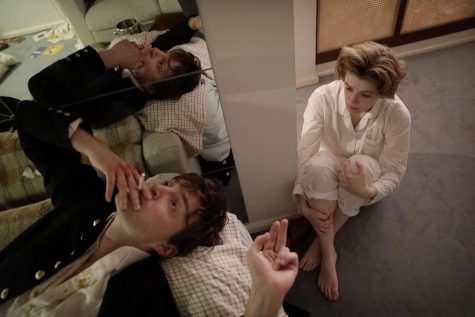
By splitting “The Souvenir” into two parts, Hogg separates the cause and effect of her emotional crisis revolving around her love affair with a troubled older man. We see the development of Julie’s character from an awkward, reticent film student into an independent artist. Viewers already know that Hogg has survived and grown into an excellent artist in her own right, but the journey of seeing Julie find her artistic voice amidst the grief and depression she feels is still satisfying.
In part I, Julie falls in love with a problematic foreign office worker, Anthony (Tom Burke). Though working in an ostensibly cushy job, Anthony is outrightly struggling with substance abuse. Hogg constantly deals with the concept of cause and effect, both in terms of what pushes Anthony further into his drug abuse, and how he burdens Julie with the emotional repercussions.
“The Souvenir” constantly questions the nature of empathy and the impetus of attraction. Anthony, by all accounts, is difficult to engage with; even sans drug abuse, he is manipulative and emotionally abusive. Hogg asks us to empathize with Julie’s love, to believe, as she does, in their relationship. This is a big ask.
The time spent with Julie across “The Souvenir” allows us an intimate view of her as an artist and as a young woman in the throes of her first love. The decisions that Julie makes are laid bare for us. Though we may not understand how or why Julie falls in love with Anthony, her decision is logical to her. Understanding Julie as a person, including her faults, helps us understand this logic.
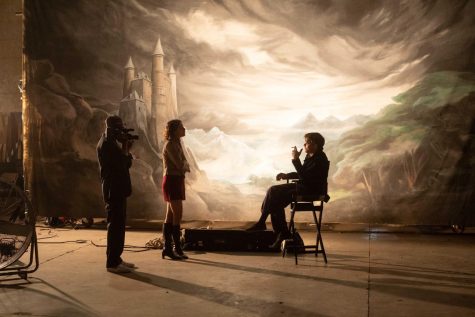
This is where Hogg’s film shines; without overtly passing judgment on Julie, Hogg retrospectively analyzes her younger self through the lens of a mature filmmaker. We accept the misty-eyed, awed sentimentality of her first love despite its irrational nature. Throughout the film, Anthony manipulates Julie, convincing her that she loves him, which parallels Hogg’s attempts to convince us of their relationship, though she does so with a gentle, empathetic tone.
After a fatal tragedy befalls Anthony, part II shows Julie’s attempts to reckon with her grief and, in a twist of meta-narrative genius, begin to look retrospectively at her own relationship with him. If part I was Hogg’s introspective look at her younger self, part II is Julie’s own look at her past. As an accomplished film student, she decides that her final thesis film will portray her relationship with Anthony.
Hogg turns part I of “The Souvenir” on itself, observing the tribulations of recounting a painful memory for the purpose of art. These two ideas, of dealing with grief and art as a form of therapy, begin to take form in part II.
Building on the style of part I, Hogg employs darker color palettes to reflect the changed adult world Julie finds herself in. Ambient, natural lighting is a large factor in part II; memories and the youthful ambition of a filmmaker are presented through an insightful, nuanced perspective.
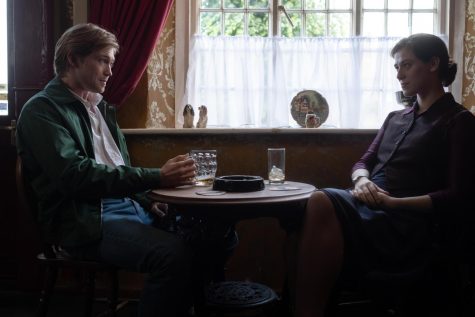
These serve as a form of verisimilitude, as if Hogg is directly reproducing and sketching out her former experiences as a painter would recreate a face from memory. Julie too, during the process of making a film about her experience, encounters the strange act of memory reproduction; how we choose to cast ourselves and how our subjective experiences guide us toward recreating a memory in a certain way — both of these interact in the filmmakers’ psychology.
Hogg balances the line between subjectivity and cinematic truthfulness. Given how much of the film’s material relies on Hogg’s own doctoring of her experiences, we can only wonder what bits were factual, what has been changed — and for what purpose. It can be difficult to gauge the veracity of the piece.
Whether or not one can truly connect with “The Souvenir” on an affective level depends solely on whether or not one believes in Julie’s love for Anthony. If we choose to forgo our own logical reasoning toward love, one that is built upon years of heartbreak and experience forming our rational belief in relationships, then we can connect with Hogg.
Ultimately, Hogg does not care for the plausibility of love. First love, for Julie, is unaffected by rationality. Given Anthony’s manipulative personality and drug abuse, we may view their relationship as toxic. However, Julie’s subjective experience is simply love, and that is what she feels.
When we too embark on that beautiful journey of our first love, we become awe-struck with this wonderful feeling. Though it inevitably ends, the essence of our initial first love can never disappear. Each individual experiences first love differently.
Objectivity is obsolete. As a result, Hogg implies, our subjective understanding of human experience can never be fully communicated. Our growth as individual humans are unique experiences, impossible to be captured by any medium at all.
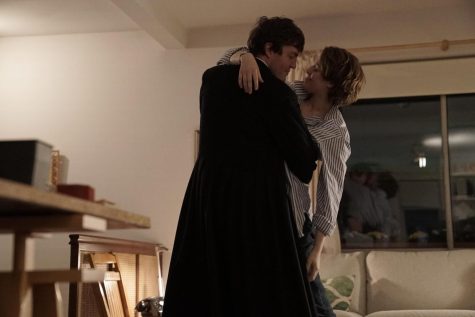
Contact Brandon Kiziloz at [email protected].

























































































































































